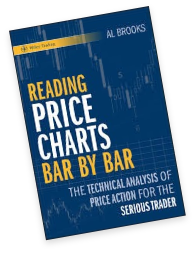Conflicts of Interest Policy
Trade Nation (“the Company”, “we”, “our” or “us”) is a trading name of Trade Nation Ltd registered at Bayview House, 1st Floor, 308 East Bay Street, PO BOX CB-12407, Nassau, New Providence, The Bahamas with registration number 203493 B. The Company is authorised and regulated by the Securities Commission of the Bahamas (‘SCB’) under license number SIA-F216 for the provision of online Spread Trading and Margin Forex Products to retail and professional clients.
Conflicts of Interest
A Conflict of Interest (“Conflict”) is a situation or arrangement where we or a company with which we have an association with, and/or any of our employees is subject to multiple influences, the competition of which might adversely affect decision-making or outcomes in the course of conducting our business affairs. A Conflict can be due to the competition of legitimate influences or the presence of harmful ones, such as personal gain.
We recognise that we may from time to time have interests that conflict with our clients’ interests or with the duties that we owe to our clients. Such conflicts may arise between: i) us and a client; ii) a client and another client; iii) an employee and a client; iv) an employee and us; or v) the Company and our related entities.
We have established policies and procedures that are designed to identify, prevent and manage Conflicts. Conflicts policies are reviewed at least annually. These policies and procedures include arrangements to safeguard the interests of clients.
How we deal with Conflicts
The Company’s organisational structures are designed so that any behaviour that could lead to Conflicts is not incentivised or rewarded. Where necessary, we restrict the flow of information to certain employees in order to protect our clients’ interests.
The Company has procedures in place to:
- Identify all types of potential Conflicts that could reasonably arise in the context of our activities;
- Maintain registers of potential Conflicts identified;
- Prevent and/or manage Conflicts on an ongoing basis;
- Disclose Conflicts where appropriate; and
- Maintain evidence of all occurrences of Conflicts that cannot be managed
Identifying Conflicts
The Company is required to consider the types of potential Conflicts relevant to the specific services and activities we carry out. For example, potential Conflicts are considered when: i) developing a new product; ii) establishing or amending any remuneration, revenue sharing or joint venture arrangements; or iii) transferring or outsourcing our activities.
Where potential Conflicts involve clients, the assessment also considers whether any employee:
- Is likely to make a financial gain or avoid a financial loss at the expense of any client;
- Has a financial or other incentive to favour the interest of one client (or group of clients) over another;
- Has an interest in the outcome of a service provided to a client, or of a transaction carried out on behalf of the client, which is distinct from the client’s interest in that outcome;
- Carries on the same business as the client; or
- Receives or will receive an inducement in relation to a service provided to the client.
We maintain internal registers, documenting and evaluating all identified potential Conflicts. These registers also record the controls in place to prevent or manage each type of Conflict and are subject to regular oversight and review by the Company’s senior management.
Preventing or managing Conflicts
The Company structures the remuneration, deployment and management of employees in a way that minimises the risk of Conflicts. Where necessary, potential Conflicts are escalated and managed before we commit to an activity or a transaction.
In some cases, we will consider declining to act, commit to an activity or a transaction, where: i) the Conflict is too great; ii) confidentiality obligations prevent adequate disclosure (see Disclosure, below); or iii) informed consent cannot be obtained, or is an insufficient control to manage conflict.
Our Regulatory Compliance department is the point of escalation for significant Conflicts, and resolution of cross-business Conflicts is brought to the Head of Regulatory Compliance department’s attention. Written reports on the services and activities reflected in the Conflicts Register are presented to the Company’s senior management at least annually.
Disclosure
We may make general disclosures to clients about certain types of potential Conflicts, explaining how such Conflicts are managed (for example, through the separation of businesses or measures to prevent unauthorised sharing of confidential information) to mitigate the risk of damage to clients’ interests. However, where the Company has used all reasonable efforts to prevent or manage a Conflict, but the risk of damage to a client interests remains, a specific disclosure about the presence of a Conflict will be made to the client.
Specific disclosures will be made prior to the conclusion of a contract, in an appropriate medium, and will include sufficient detail, considering the nature of the client, to enable that client to make an informed decision. Please note that in some instances, a duty of confidentiality to one party might limit the disclosures that can be made to another.
Employees
The Company requires its employees to apply good judgement and act with integrity, taking all appropriate steps to: i) avoid Conflicts (for example, personal account dealings); and ii) proactively escalate Conflicts that arise.
No employee is permitted to act on any matter in which they have a personal interest, nor take commercial decisions on behalf of the Company if those decisions are connected to their personal or external business affairs until steps have been taken to satisfactorily manage the Conflict.
This policy was last updated on 15th February 2023



